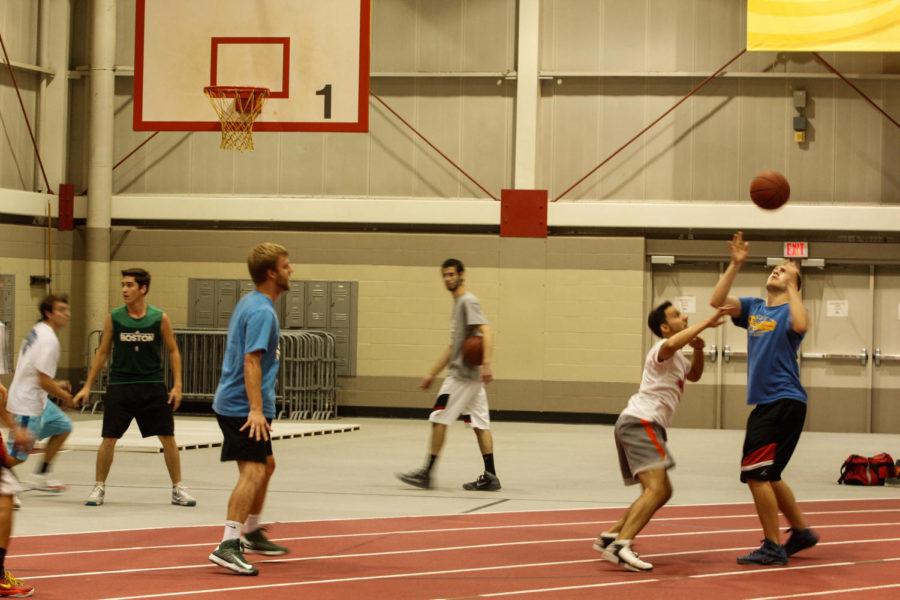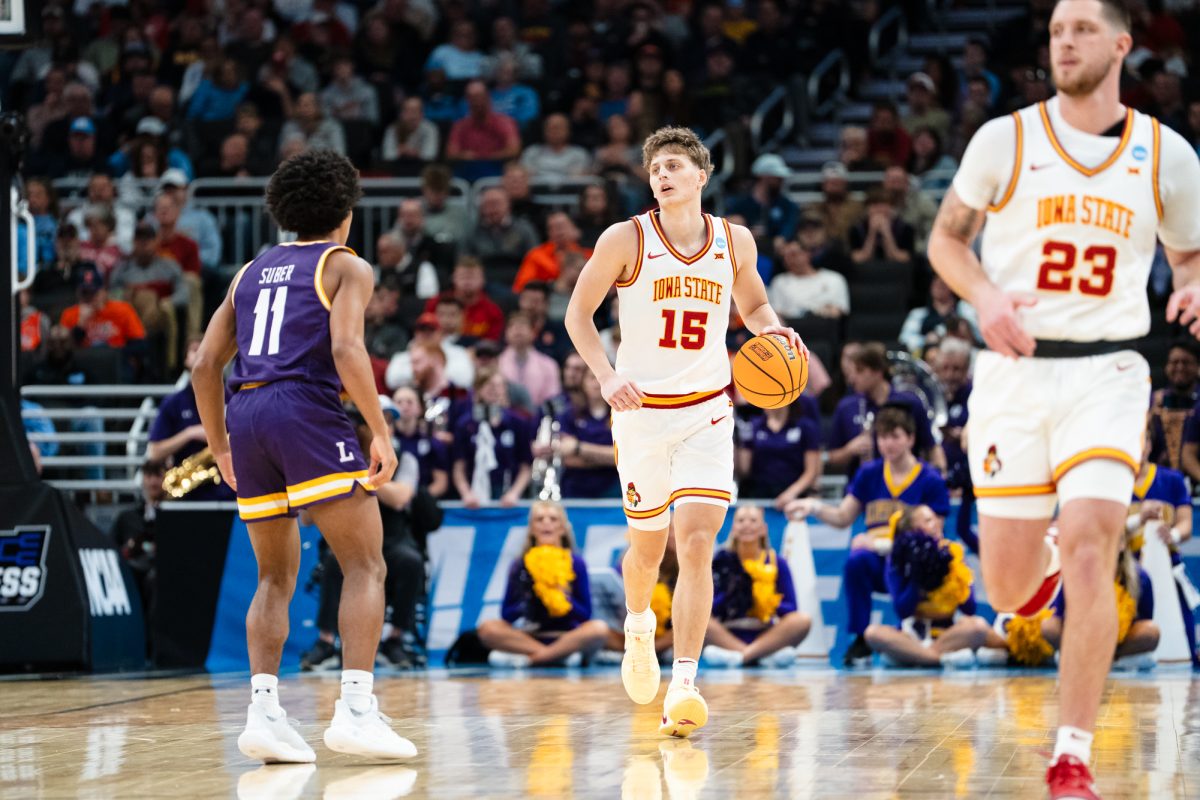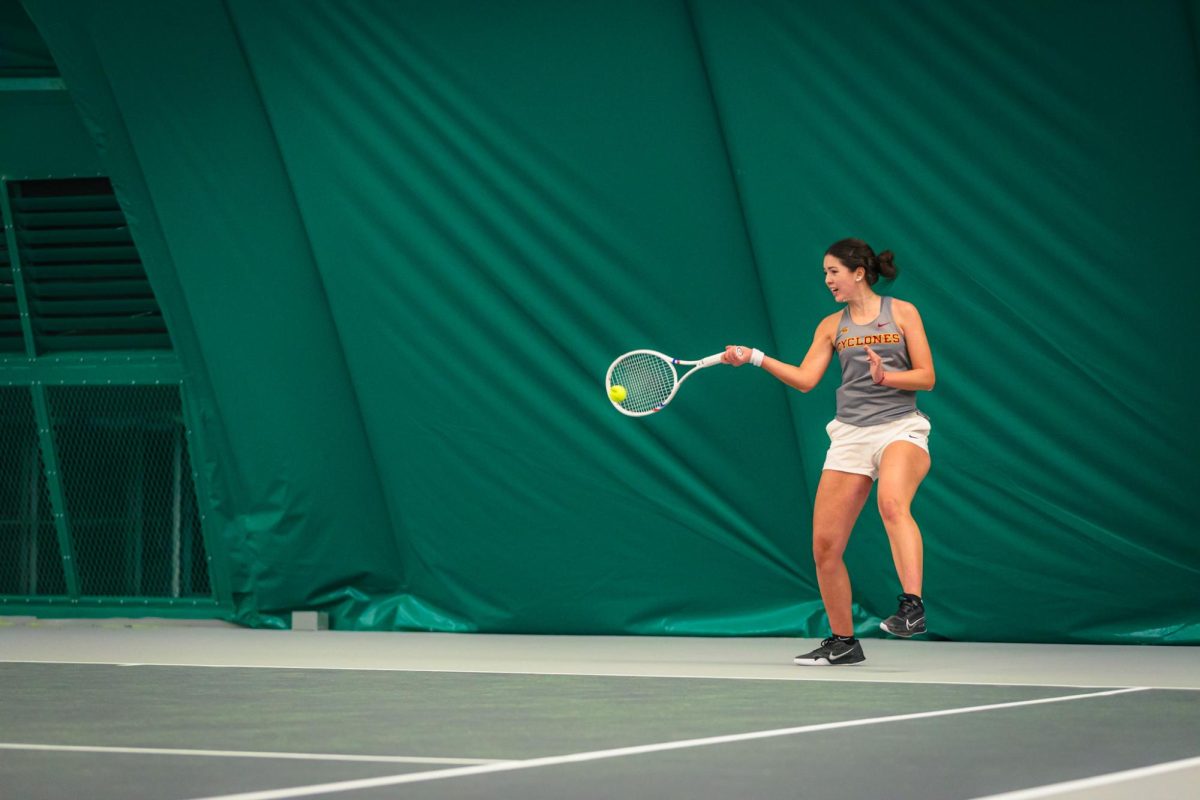Woods: Spread fairness in Intramurals
Hannah Hoolihan/Iowa State Daily
Intramural Basketball teams play each other at Leid Gym during Gold Olympics. This is an event that occurs during Homecoming week.
December 3, 2014
Being active is a huge part of being a college student. Giving the brain a break from the stresses of a day full of classes allows for the opportunity to recharge.
Iowa State plays a noticeable part in facilitating student activities through intramural sports. A plethora of activities are organized for any qualified college student to participate in.
From table tennis to soccer, the list consists of 45 sports, which students can compete to win the coveted intramural champion’s t-shirt.
“Students wanted to play sports and that is why intramurals began,” said Linda Marticke, program coordinator for the recreation services department, a department that was created in 1920 to help organize activities for students to participate in.
There are probably a variety of reasons as to why students want to participate, Marticke said. Some of them would include the fact that it is fun to play, it is fun to compete, it is a distraction and break from studies, it is a social activity to do with friends, it is a way to make friends, it is a way to stay physically active and it is also a way to experience getting along with others.
As of last year, more than 9,900 students fought to win the title and the t-shirt, which makes the games turn pretty competitive pretty quickly. Which is why skill level divisions were set up to make the playing field as level as possible.
“It is very important to the intramural coordinators to keep the games as fair as possible,” Marticke said. “However, student teams are allowed to pick the skill level that they feel is best for their team. We do the best we can with the information that we have and sometimes move teams to a different skill division than what they signed up for.”
It does happen where teams ‘underestimate’ their skill level and enter into a bracket against teams that are much less talented in the selected sport. Obviously that isn’t fair, and it also doesn’t make it much fun for the participants.
It could be frustrating for those teams or individuals who are trying to enjoy some fun competitive play. Especially if an opponent who professes to be a beginner or only to have experienced the sport a few times, is actually playing like an expert and it is completely obvious they should be in a more difficult skill level.
The good news is, not every intramural sport experiences as much of this frustration. Softball, broomball, flag football, volleyball, floor hockey, soccer, ice hockey, basketball, wrestling and dodgeball are the select few that have referees to judge the skill level during preliminary rounds. This would determine if a team were really as skilled or not as skilled as they say they are.
However, there are still sports that don’t have people monitoring the matches to watch out for those who don’t belong in a certain skill level. For all of the rest of the games supervisors are designated to keep the time and score, said Marticke, but the games are not officiated. As a result, skill levels are unwatched and the fairness of opponents isn’t strictly divided to create an evenly matched atmosphere.
The intramural program is always looking to improve, said Marticke.
“We evaluate the entire program every year and try and make any adjustments that we think would improve it. This year we have added the sport of tennis singles,” she said.
It would be nice, if in the future, all intramural sports were monitored for skill levels. Having an even playing field makes the challenge to be champions even more competitive and more enjoyable.







